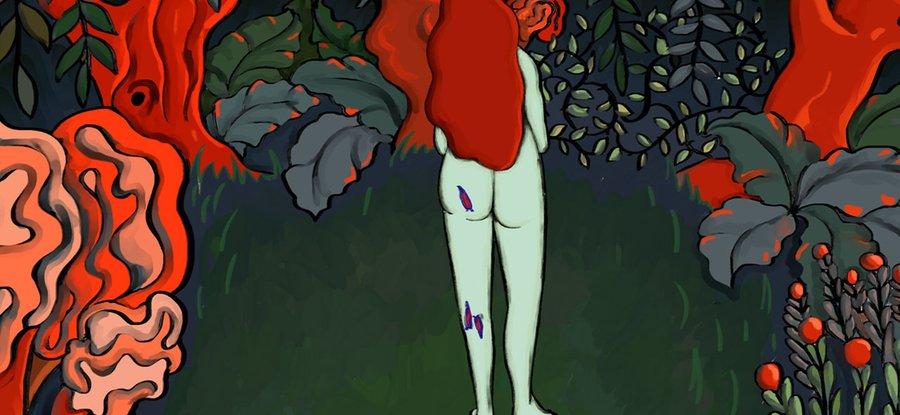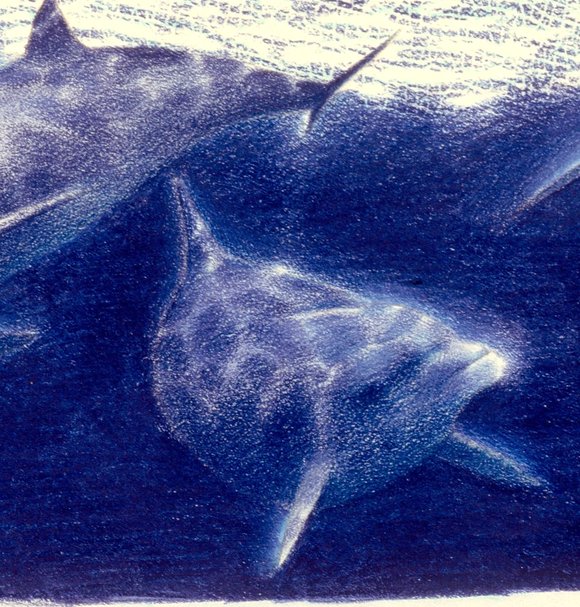
Key details
Date
- 11 July 2025
Read time
- 5 minutes
The RCA Animation course celebrates 40 years shaping not only the independent film scene, but commercial studios, arts institutions, education, and emerging media worldwide.
Forty years ago, RCA Animation began as an experiment; a new department growing out of illustration, design, and film. The first cohort was small, the ambition was huge, and no one could have predicted how influential the course would become. Since then, the RCA Animation MA has evolved through seismic shifts in technology, education and culture. But one constant has remained: a fierce commitment to experimentation and innovation.
This is not a course designed to churn out animators for industry pipelines. Instead, RCA Animation champions a more ambitious goal; the development of filmmakers, artists, and auteurs. In doing so, it has produced a generation of award winners, studio founders, educators and social change-makers whose work continues to push boundaries.
The course’s story began in 1985, formally launched as the ‘Department for Animation and Audiovisual Arts’ after growing out of interdisciplinary work between graphic design, illustration, and the School of Film and Television. Early on, students animated within the broader film school context, establishing animation’s roots as a cross-disciplinary, exploratory practice.
“We don’t force people into prescribed pipelines. What we offer is space and support to develop a personal, critically engaged creative voice.”
RCA Animation Tutor (Research)
The following decades saw RCA Animation evolve alongside the medium itself. The 1990s brought a cultural wave of optimism and a fertile creative climate across music, television, and the arts. The influence of music videos, commercials, and pop culture filtered into the work being made, as RCA students increasingly embraced narrative work, character design, and experimentation with voiceover and stylised visual language.
In the 2000s, digital tools transformed how animation was made and shared. Students no longer worked only on film—they edited, composited, and distributed work in entirely new ways. The rise of the internet, digital animation and viral culture blurred the boundaries of what counted as “animation”, and with the immense support of technical staff, students were able to explore new territories. And as global politics shifted, so did the work. Films emerged like Max Hattler’s Collision, which used abstract geometry to reflect on conflict and identity in the wake of the Iraq War.
The 2010s saw animation enter an era of rapid accessibility. Smartphones, social media, and platforms like Vimeo meant student work could reach a global audience overnight. Traditional UK funding routes changed and in some cases shrank, yet RCA Animation continued to thrive, attracting more international students and adapting to the realities of a digital-first industry.

RCA Animation students at work during a "manual cinema session"
And now, in the 2020s, animation faces a moment of both urgency and expansion. Brexit, COVID, AI, VR and global political upheaval have all left their mark. Student films have responded with personal, political and technologically adventurous work that reflects the times, but stays true to the course’s spirit of pushing boundaries.
For RCA Animation research tutor Carla MacKinnon, experimentation isn’t a “nice-to-have”, it’s essential. "We need to see students going into the unknown; whether it's their own personal unknown or a technical one,” she explains. “Sometimes the outcomes are extraordinary, sometimes not, but it's the attempt, the process, the risk that matters.”
“People who come into the course need to have a desire to reinvent the world.”
RCA Animation Tutor (Research)
MacKinnon’s own journey reflects this ethos. Coming from a live-action background, she used her RCA time to create an experimental animated documentary about sleep paralysis—blending animation, live action and performance. But, as RCA Animation research tutor and artist-researcher, Dr Katerina Athanasopoulou, points out, experimentation isn’t always about technology, it's about new ways of seeing. “People who come into the course need to have a desire to reinvent the world,” Athanasopoulou says.
That spirit has defined the course for decades. Karen Kelly’s Egoli (1989) blended experimental animation with social commentary on South African mining, becoming the first RCA animation to earn a BAFTA nomination. More recently, Anna Mantzaris’ Enough (2017) captured the quiet frustrations of daily life in award-winning stop-motion. For students, that freedom to experiment isn't just about form, it reshapes how they approach storytelling itself. 2018 graduate Dal Park describes how RCA Animation opened her up to “the vast universe of animation” and new ways of expressing ideas.
The course's deep-rooted culture of experimentation is built on a belief that students should leave not only with technical skills, but with a clear artistic identity. Students arrive from diverse creative disciplines and are encouraged to bring their full selves into the work. “We don’t force people into prescribed pipelines,” says MacKinnon. “What we offer is space and support to develop a personal, critically engaged creative voice.”
This critical underpinning is what helps graduates leave not just with strong films, but a strong sense of self. Athanasopoulou compares the approach to cooking: “Testing is like tasting. You can’t expect to just cook something and it works at the end. You look at your ingredients, put them together, bring others in, and ask: how does it taste?”
The curriculum reflects this, with workshops on writing and genre, exercises in film language, and a pedagogical model that blends art school thinking with narrative structure. "We’re not just animators or technicians," says RCA Animation Associate Lecturer and alumnus Rory Waudby-Tolley. "We’re filmmakers, writers, directors, storytellers. It’s a holistic approach."
This focus on authorship has helped launch graduates into diverse, impactful careers. Alumna Irushi Tennekoon now leads animation education in Sri Lanka, while Mary Martins combines PhD research with animated films about her Nigerian heritage. Leo Murray, a 2008 graduate, works as a climate-focused visual storyteller, creating high-impact campaigns that fuse data, animation and activism.

RCA students experiment with animation techniques in 2024
To join RCA Animation is to enter a living legacy, one that stretches across four decades and whose impact is visible in everything from BAFTA-winning short films to boundary-breaking studio work. For Waudby-Tolley, it's vital that students understand their work will one day form part of this archive. “This time will eventually be the past. So it's important we ask students: What do you want your work to say about where we are now? How do you want people to look back at it in 30 years?”
Over four decades, RCA Animation graduates have shaped not only the independent film scene, but commercial studios, arts institutions, education, and emerging media worldwide. To preserve and celebrate this rich history, Waudby-Tolley has developed an archive site of RCA graduation films; a growing resource for students and animators to place themselves within a lineage of innovation.
But while RCA Animation’s reputation is globally recognised, it is increasingly important that the course is made accessible to as many people as possible. “I want this course to be available to everyone,” says Dr Samantha Moore, RCA Animation’s Head of Programme. “I grew up on free school meals. I couldn’t afford an MA now without a full scholarship. We have to be approachable, to both global and local communities. You can’t get in unless you’re good. But you just have to be good. That’s it.”
“We’re not just animators or technicians; we’re filmmakers, writers, directors, storytellers. It’s a holistic approach.”
RCA Animation Associate Lecturer
Moore is hoping to achieve this by “actively and mindfully” making connections with universities and film festivals around the UK, to ensure the most people know about the course and can see it as a viable route to take, whatever their financial status.
Diversification will be key to the course’s future success, and so will a dexterity with keeping ahead of rapid advances in CGI, VR/AR, and AI. Athanasopoulou doesn’t see technological advances as a threat but more as an opportunity for expansion. “Our students have always had a particular desire to work with materials physically and in a tactile way. All these fears that computers will take over never quite materialise,” she says. “In fact, the more people talk about AI, the more physical and handmade the students’ work becomes.”
Joe King, an award-winning artist and long-time RCA Animation tutor, agrees that animation will continue to be about staying curious and human. “It’s never just about the machine,” King says. “The course should always challenge students to be brave enough to push their own vision—and offer them the tools to realise it.”
RCA Scholarships
More information
Our scholarship programme is growing, with over 300 scholarships available for the 2025/26 academic year. These awards support students in financial need and those from under-represented groups, including students with disabilities and students with refugee and asylum seeker status.

